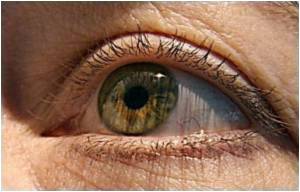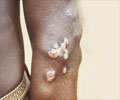
"Ivermectin is one of the most important veterinary and human anti-parasitic agents ever. Knowing specifically how it interacts with the body's own immune system and kills parasitic worms opens up whole new treatment avenues," said Mackenzie.
Elephantiasis (lymphatic filariasis) is caused by tiny worms spread via mosquitoes and results in severe swelling of the legs, arms and torso. River blindness (onchocerciasis) is spread by black flies, and after the worms die in a person's eye, they can cause blindness and debilitating skin disease.
Ivermectin works by killing the first stage of the worm in the human body, and also appears to paralyze the reproductive tract of the adult female worms, stopping reproduction of new parasites.
"Understanding how the worms were avoiding the host's immune responses will greatly enhance our ability to manipulate the immune system to the advantage of the host, and perhaps develop vaccines," Mackenzie said.
"Also, one of the most important challenges in the overall effort against filarial infections relates to the development of resistance and the loss of efficacy of the drugs we use; this new knowledge provides an important key to understanding and perhaps preventing resistance," he added.
Advertisement
Source-ANI











